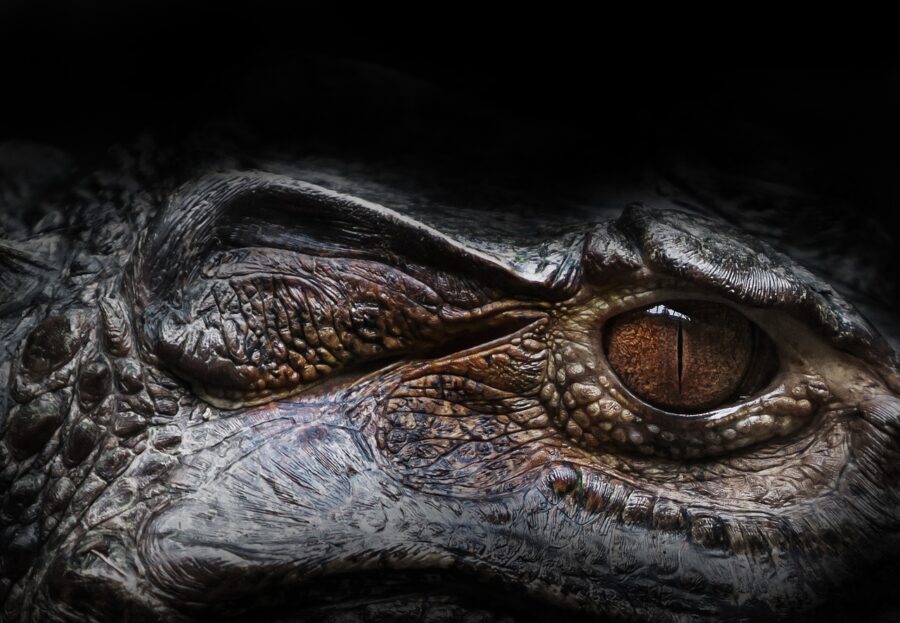Throughout Florida, one of the most common sights is to see an alligator. This isn’t that surprising, given the overall climate and access to all different kinds of waterways. But at the same time, this also provides a seemingly natural habitat for crocodiles. Given the closeness of these two animals, it’s important to understand what to do if you come into contact with them–and what to do if you get hurt by one.
Contact Cowen Edwards today for a free consultation if you want to discuss a potential case.
Crocodiles and Alligators in Florida
According to the United States Geological Survey, South Florida is one of the only places in the world where you’ll find both crocodiles and alligators living together in the wild. While this answers the question of whether you’ll find both of them in the area, it’s more beneficial to know where you’re most likely to find them:
- Freshwater – Alligators prefer freshwater sources, like lakes and rivers. There’s an abundance of these in Fort Lauderdale and the surrounding area, so if you go swimming or boating at one of these places, you might come into contact with them.
- Saltwater – Crocodiles, on the other hand, prefer sources of saltwater, like beaches and oceans. So, when you go out to relax or enjoy the beach, there’s a chance that you could come across a crocodile.
- Ponds and urban areas – Unfortunately, alligators sometimes venture into human-populated areas, such as golf course ponds or suburban neighborhoods with retention ponds.
- Reptile shows and exhibits – There’s also numerous gatherings for fans, breeders, and sellers to show off and sell reptiles, amphibians, and gear at expos and other shows. Fort Lauderdale, being a bustling city with lots going on, often has these expos among its events.
Remember, whenever you see one of these animals, it’s important to not approach it. Most of the time, they’ll leave you alone. However, if they feel like you’re entering their territory or are a threat in any way, they’ll respond. That said, if you get hurt in one of these incidents because of negligence, it changes things a bit.

Who’s Responsible If You Are Injured?
Obviously, figuring out who is responsible for covering your injuries in these situations is going to depend on the circumstances. While you have the legal right to file an injury claim, that only applies if you were hurt because of negligence. Negligence, in legal terms, has four elements:
- Duty of care – The property owner or government agency that manages a property has a duty to take measures to keep you safe.
- Breach of duty – They violated this duty, or breached it.
- Causation – This breach caused an accident with an alligator or crocodile.
- Damages – This accident was linked to your injuries.
With this established, any of the following could potentially be liable for covering your injuries:
- Property owners – People who own places like zoos or private land with crocodiles and alligators must keep visitors safe with signs, fences, and supervision.
- Tour operators – Companies offering tours near crocodiles and alligators must give safety rules and gear to keep participants safe.
- Wildlife authorities – Government groups must protect the public by managing dangerous animals in certain areas.
- Individuals – People who go where crocodiles or alligators live must be careful, like avoiding swimming near them or getting too close.
Damages
If you or someone you’re with gets hurt by a crocodile or alligator and thinks that one of these above parties are responsible, you have the legal right to file an injury claim for damages. That said, each case is different, so it’s best to talk to our team about these kinds of injuries and what to expect.
Whether you decide to file an insurance claim or personal injury lawsuit, you can potentially recover:
- Medical expenses and treatment costs
- Ongoing care needs or physical therapy costs
- Costs related to scarring or disfigurement
- Lost wages or any other income
- Pain and suffering
- Emotional distress
- Loss of enjoyment of life
- Punitive damages, in certain cases
Contact Cowen Edwards For a Free Consultation
If you’ve been injured by an alligator or crocodile in Fort Lauderdale, the circumstances surrounding the incident are extremely important. That said, dealing with injuries and the legal process can be overwhelming. Our Fort Lauderdale personal injury lawyers at Cowen Edwards can help, though. We’ll explain your options, gather evidence, and support you throughout the process. To get started, contact us today for a free consultation.

